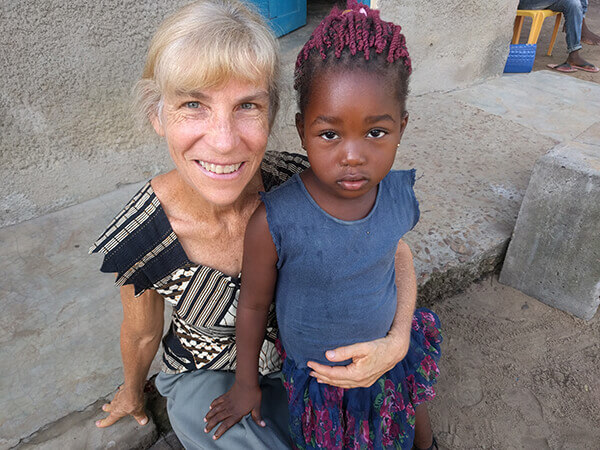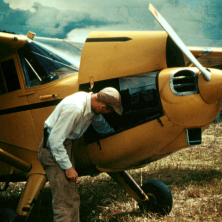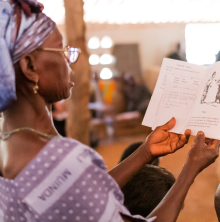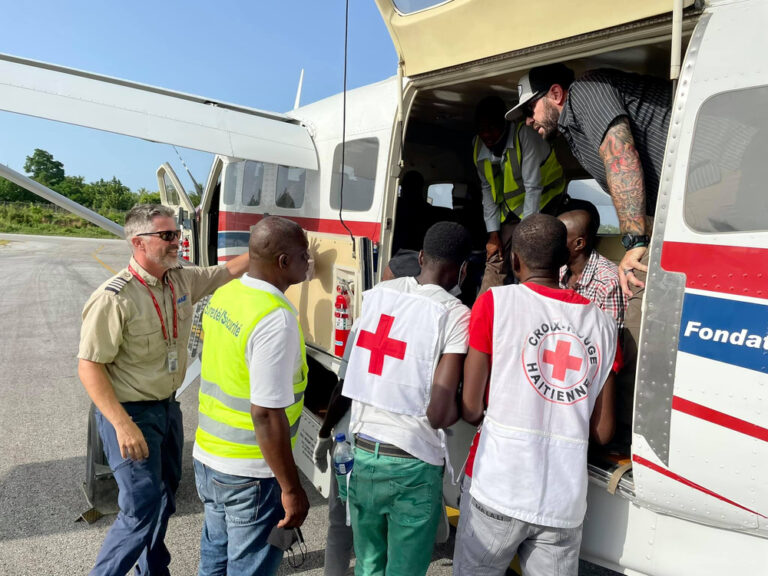Editor’s note: When the MAF airplane landed at Kikongo back in May, only a few brave kids ran out to meet it. However, when they saw doctors carrying a blood samples case, they ran away screaming. MAF pilot Jonathan de Jongh had experienced one holdup after another that day. Now with this last unscheduled stop, he understood why. Below is the account of why this critical flight was needed, as written by one of our clients, Katherine Niles, a physician’s assistant with American Baptist International Ministries. Because of your support and prayers for MAF, you played a role in this series of events in the Democratic Republic of the Congo.
Story by Katherine Niles
Earlier in May, I got a call from an unrecognized number. “Hi! This is Glen! I’m calling from the satellite phone.” There are no cell phone towers near Kikongo where fellow missionaries Glen and Rita Chapman live. Communication is by email, or in “dire emergencies,” by satellite phone.
“The hospital urgently needs to get a specimen to the National Research Lab in Kinshasa.” The previous night, two children arrived from a distant village, both with high fevers, bloody diarrhea, and bleeding from nose and mouth. One died shortly after arriving. The father reported three other deaths in the village with similar symptoms. Kikongo was instantly on edge. Patients began fleeing. Visitors left by night. Nervous nurses huddled outside the ward like pigeons that knew their roost but were scared to enter. Kikongo’s brave young physician donned gloves and a surgical gown and sweated all night over her young patient. The scenario bore ominous fingerprints of Ebola.
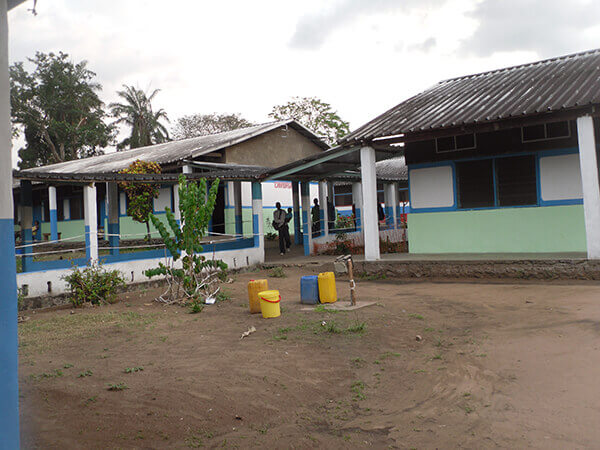
Glen would call back in an hour, and the phone went dead. Transport a specimen in a timely manner?! Kikongo is 300 miles from Kinshasa, with access only by grass airstrip and a barely negotiable dirt road. Yet, a diagnosis was critical and protective equipment urgent. If this was Ebola, all Kikongo was in danger, particularly precious health care workers.
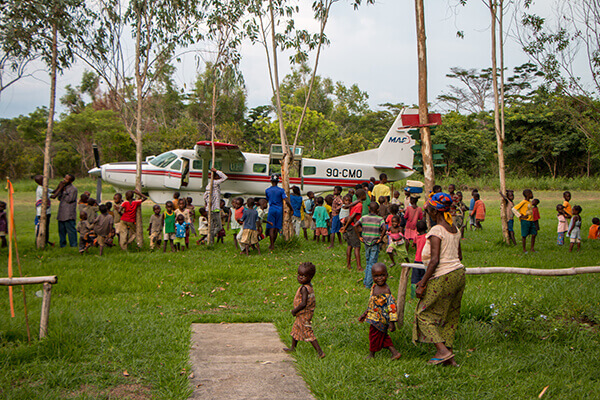
In “dire emergencies” we call MAF (Mission Aviation Fellowship), and charter a flight—if a plane, a pilot, and funds are available.
“Hey, Nick. I have a problem! I said when Nick Frey, the program manager of MAF West DRC answered the phone.” Though late in the day, due to a comedy of delays, a plane happened to be leaving Vanga imminently. Kikongo is directly in the flight path between Vanga and Kinshasa. How good is God! Nick assured me the pilot could stop, though only briefly, for storms were brewing and dusk approaching. Thank you, MAF!
I still had a problem. Who might have a phone number for the National Lab? The flight would land after hours. I called a lab technician friend. He knew someone and had a number, which I called. Someone answered! A physician assured me that drop-off after-hours posed no problem. “Indicate it’s a specimen for virology. I’ll look for it in the morning.”
In this traffic-jammed city, how would I organize getting the specimen from airport to lab? I thought of Mr. Mador who does purchasing and errands for us. “Hello, Mador. I have a problem.” Though already on his way home, he would swing by the airport, collect the specimen and drop it off at the lab. By the time Glen called back, expediting a specimen was almost organized.
Typically, Ebola outbreaks occur in remote areas and it can take weeks for word to get out, a sample to be collected, and a diagnosis to be made. But … the storm held off. MAF landed. Mador met the flight. The National lab acknowledged delivery of the specimen by 6:30 pm. The weary Kikongo doctor messaged to know if her specimen arrived. It took less than three hours for our sample to be delivered—miraculous timing. Now there was nothing to do but count on God’s mercy and hold our breath.
All night I tossed, praying for the young doctor, her team, and rehearsing in my mind what needed to be done next if the result was positive. I would need to buy as many gloves, gowns, masks, rubber boots and as much disinfectant as an MAF plane could carry. If the National Lab confirmed Ebola, without doubt, in a few days, international agencies would swoop in with money, equipment, and personnel, to deal with the epidemic, but these initial critical hours were ours.
Mercifully, at six in the morning, Glen sent a first email. The second young patient had improved, responding to her treatment. No more patients arrived in the night. A tense calm reigned in Kikongo. I postponed my shopping trip. At one in the afternoon, the National Lab called. Tests for Ebola virus were negative.
We all breathed deeply. God used a satellite phone, an MAF plane, an expedited specimen, and faithful servants to prove to me his present help in time of (potential) trouble. In uncountable ways, by miracles and circumstances, God uses the prayers you offer for us, sometimes in dramatic ways. Thank you!
